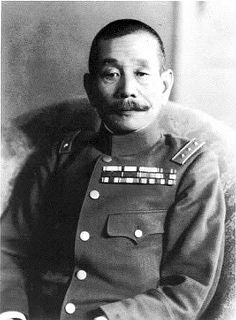A Quote by Gene Luen Yang
Many Japanese families moved to Taiwan during the occupation. Then, when the war ended, they were forced to move back. And at the macro level, the Taiwanese had every reason to cheer when the Japanese left. The Japanese military could often be incredibly brutal. The Taiwanese lived as second-class citizens on their own land.
Related Quotes
My colleagues and I are of that generation of young men who went through the Second World War and the Japanese Occupation and emerged determined that no one–neither Japanese nor British–had the right to push and kick us around. We determined that we could govern ourselves and bring up our children in a country where we can be proud to be self-respecting people.
My grandmother lived under Japanese colonial rule until she was nine. Korea, still united and whole, was colonized in 1910. During this period of forced occupation, Japanese teachers taught Korean students how to view the world through their imperialist language, their history, their foreign tongue.
It is sobering to recall that though the Japanese relocation program, carried through at such incalculable cost in misery and tragedy, was justified on the ground that the Japanese were potentially disloyal, the record does not disclose a single case of Japanese disloyalty or sabotage during the whole war.
The Japanese army is now prepared to use every means within its power to subdue its opponents. The objectives of the Japanese Expeditionary Forces are, as clearly set forth in statements issued by the Japanese Government, not only to protect the vested interests of Japan and the lives and property of the Japanese residents in the affected area, but also to scourge the Chinese Government and army who have een pursuing anti-foreign and anti-Japanese policies in collaboration with Communist influences.
Imagine what I could have done in ten years. I could have learned to speak Japanese. I could have played every RPG video game ever created, and if I spoke Japanese I could have played the foreign ones too! Man, I could have built a spaceship in my backyard and flew it to the moon and back, if I wanted.
As well as Japanese animation, technology has a huge influence on Japanese society, and also Japanese novels. It's because before, people tended to think that ideology or religion were the things that actually changed people, but it's been proven that that's not the case. Technology has been proven to be the thing that's actually changing people. So in that sense, it's become a theme in Japanese culture.







































